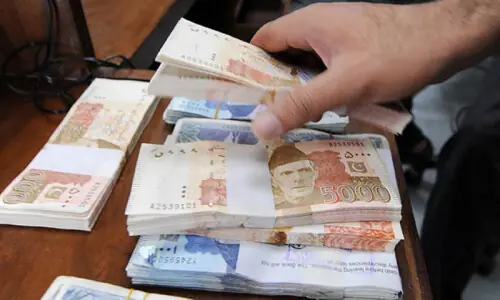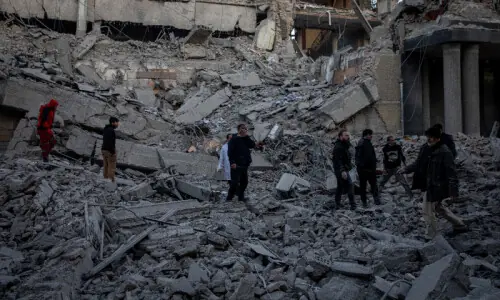KARACHI: The Sindh environment department will set up combine effluent treatment plants (CETPs) in various industrial areas of Karachi to ensure cleaning of waste water before releasing to the sea.
The treatment plants were earlier to be set up by the industries department, but considering the expertise of the environment department, the Sindh government has decided that the CETPs should be placed under the supervision of the environmental officers so that their procurement, installation, and operation are performed in accordance with the international environmental standards.
This was stated by Adviser to the Chief Minister on Law, Environment, Climate Change, and Coastal Development Barrister Murtaza Wahab while speaking at a panel discussion organized by the Sindh Environmental Protection Agency (Sepa) on the occasion of World Earth Day, here on Friday.
A limited number of environmental experts, educators, and government officials attended the seminar held under safety measures of Covid-19.
Murtaza Wahab said that with the funding of Rs11.8 billion, the CETPs would be established in the industrial areas of SITE, SITE Trans Lyari, Federal B Area and North Karachi, Korangi and Landhi, and Superhighway. The industrial waste water from 625 factories would be discharged into the sea after treatment.
He said the Sindh government was making efforts to introduce vertical tree planting in Karachi because of the scarcity of open spaces to reduce the pressure of air pollution by planting trees in large pots on all floors of private and government high-rise buildings.
Mr Wahab expressed happiness that people were gradually realizing the importance and usefulness of tree planting.
He said the Sindh government was also at the forefront of setting up urban forests which were being introduced not only in posh, but also in the middle-class areas of Karachi. In that regard, 140,000 saplings have been planted at Kidney Hill, he added.
Environment, climate change and coastal development secretary Mohammad Aslam Ghauri delivered the welcome address.
In his detailed presentation on the topic of restoration of the marine environment, Sepa director general Naeem Ahmad Mughal said the main causes of marine pollution were the flow of industrial and domestic waste water, port activities, and dumping of solid waste directly into the sea.
He said the situation required industries to discharge their waste water into the sea after treatment and local bodies to ensure the installation of treatment plants for domestic waste water.
Professor Dr Jameel Kazmi of Karachi University in his address said that if the environment of Karachi was to be restored, more and more native plants had to be planted while foreign plants had to be discouraged.
At the end of the programme, Murtaza Wahab also planted a sapling.
Published in Dawn, May 1st, 2021





























